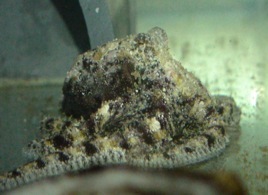Robyn Crook, PhD BSc
Evolutionary Biology, Animal Behavior, Neuroscience
Robyn Crook, PhD BSc
Evolutionary Biology, Animal Behavior, Neuroscience
I am primarily a behaviouralist with interests in neural plasticity, nociception and the higher cognitive experience of pain. My research examines conserved mechanisms of neural plasticity involved in learning, memory, pain and affective states, contrasting cellular and behavioural changes after injury that vary among invertebrate and vertebrate animals.
Generally I seek to understand how and why mechanisms of neural plasticity might be conserved across taxonomically diverse species with vastly different brains and behaviours, and how different selective pressures drive the evolution of these mechanisms in distantly related species.
Nociception and Sensitisation
In my current research I use neurophysiological and behavioural techniques to examine nociception (detecting noxious or unpleasant stimuli) nociceptive sensitisation, and pain in invertebrates and mammals. Sensitisation resulting from tissue injury or from noxious stimuli can be expressed both as changes to the neurons that detect these stimuli, and as a change to the animal’s behaviour. By studying both nociceptors and the behaviours they influence, we aim to understand how sensitisation might function to provide a fitness benefit for affected animals.
Pain and Animal Welfare
Invertebrate animals are used widely in scientific research but unlike vertebrate animals, their use is generally loosely regulated. This is based partly on the historical and still prevalent view that invertebrate animals lack sufficient neural complexity to experience pain, distress or other negative affective states when subjected to the same experimental manipulations that might cause pain in mammals or other vertebrates. However, we still know very little about how invertebrates respond to noxious sensations. Many scientists think invertebrates are capable only of nociception (reflexive avoidance that involves no cognitive awareness), whereas others think they might experience pain (a negative emotional state associated with noxious sensations). Distinguishing these experimentally requires a good understanding of sensory physiology and neurobiology, which is still largely missing for cephalopods.
As concern for the welfare of invertebrates increases, there is a critical need for careful study of the way invertebrates process and respond to potentially noxious and injurious stimuli. Parts of our work aim to clarify how cephalopods respond to different types of sensory stimuli, so that we and others can assess objectively whether cephalopods experience the emotional. subjective aspect that defines pain, or whether their responses are the result of reflexes that do not encompass emotional states.
A list of publications can be found here
Examples of our work in the press:
Pain in invertebrates New Scientist, Washington Post
Nociception in cephalopods BrainFacts, JEB, NeuroDojo
Nautilus memory New Scientist, Nature (paywall), ScienceDaily, JEB
Squid iridescence LiveScience, Houston Chronicle, Huffington Post
Research Interests

I am an evolutionary biologist and behavioral neuroscientist at the University of Texas, Houston. My broad research focus is the evolution and function of complex behaviors. I study injury, nociception and pain in invertebrate and vertebrate animals, comparing mechanisms of plasticity in nociceptors, and functions of injury-induced behaviors.


